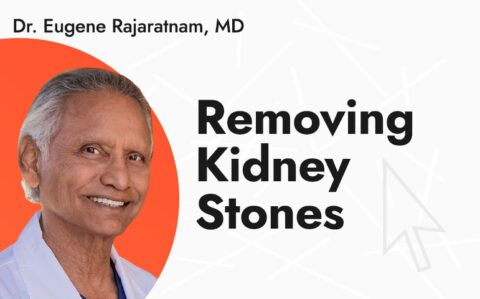-
-
-
Kidney Stones
-
Learn about what kidney stones are, their common causes, symptoms, and possible treatments.
Kidney stones, also known as renal calculi or nephrolithiasis, are solid accumulations of minerals and salts that develop in the kidneys as a result of factors like inadequate hydration, dietary irregularities, or genetic susceptibility. These crystal formations come in a range of sizes, from tiny particles to larger pebble-like structures, and have the potential to block the natural passage of urine in the urinary system. The formation of kidney stones is a multifaceted process influenced by metabolic processes, urinary pH levels, and the presence of different substances in the urine.
Kidney stones often cause sudden pain in the side, blood in the urine, and discomfort when urinating. The formation of kidney stones is a complex process involving various stages like nucleation, growth, aggregation, and retention within the kidney system. Treatment for kidney stones can vary from simple steps like drinking more fluids to more advanced procedures such as shock wave therapy or surgery for larger stones. Having a deep understanding of the biochemical and physiological factors behind kidney stone formation is essential for developing successful management plans to prevent future occurrences and ease symptoms in those affected.
Common Causes
Kidney stones can arise from a variety of factors, including dietary choices, genetics, and metabolic issues. Consuming foods high in oxalates, like leafy greens and chocolate, can lead to the formation of stones by binding calcium ions in the urine. Those with a family history of kidney stones are more likely to develop them due to genetic influences.
Furthermore, imbalances in metabolic processes related to calcium, oxalate, and uric acid can result in higher levels of these substances in the urine, leading to the formation of kidney stones as crystals form and merge. Conditions like hyperparathyroidism or gout can disturb the balance of minerals in the urine by causing excess excretion of calcium or uric acid, increasing the risk of stone formation. Along with internal factors, external factors like dehydration and insufficient fluid intake can concentrate solutes in the urine, making it easier for crystals to come together and create kidney stones. Understanding the complex causes of kidney stone formation is crucial for developing effective prevention methods and treatments to manage this challenging urological condition.
When to Contact a Medical Professional
Contact a Urologist if you experience the following:
- Severe pain that is not relieved by over-the-counter medications.
- Persistent nausea and vomiting.
- Fever and chills along with pain in the back or side.
- Blood in the urine.
- Difficulty passing urine.
Prior Treatment Home Care Measures
- Stay hydrated by drinking plenty of water to help flush out the kidneys.
- Use heat therapy on the affected area.
- Follow a balanced diet low in salt and oxalate-rich foods.
-
Related Videos
-
Find Treatments
-
-
-
Organ Detoxification Therapy
-
Improve your body's organs for better function and health.
-
-
-
-
-
Kidney Stones Treatment
-
Prevent kidney failure by addressing imbalances that hinder kidney functions.
-
-
-
